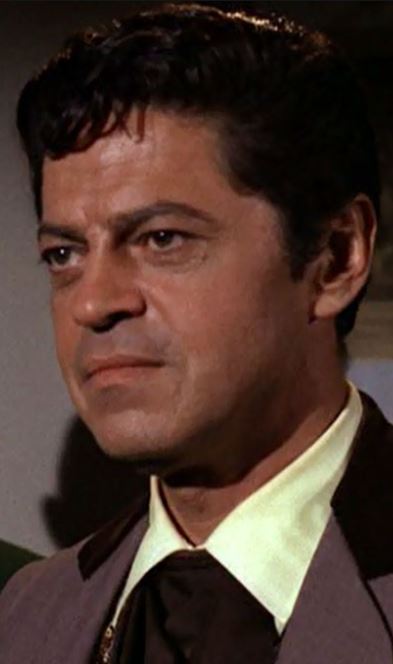Ross Martin (Martin Rosenblatt)

Ross Martin
Born Martin Rosenblatt in Grodek, Poland, Ross emigrated to New York when he was only a few months old. He spent his childhood on the Lower East Side of Manhattan and spoke only Yiddish, Polish and Russian before adding English at the age of five. He later became fluent in French, Spanish, and Italian. By age eight, he was also a violin soloist for a junior symphony (a skill he later displayed in an episode of The Wild Wild West).
His studies mirrored his eclectic abilities. He attended the City College of New York (now Baruch College) where he majored in marketing. He later received a scholarship and attended the National School of Law in Washington, DC. However, he chose acting as his profession and became half of the vaudeville team of Ross and West while he was still in his late teens (shown in photo above).
From that starting point, he entered the fields of radio and television before making his Broadway debut in Hazel Flagg in 1953. After touring in Guys and Dolls (as Nathan Detroit), he returned to Broadway to star alongside Eartha Kitt and Eddie Bracken (playing a lightning bug named Broadway).
Quote from Ross’s Shinbone Alley Playbill bio: “Though Ross Martin plays a lightning bug, he has had sufficient formal education to portray something even more luminous.” [Note: Playbill bios are usually written by the performers themselves.]
However, Hollywood soon called. Ross’s first film was Conquest of Space, followed by a small, but pivotal role in The Colossus of New York (1958). Other prestigious tv credits included two episodes of The Twilight Zone, as well as two episodes of both Gunsmoke and Sea Hunt. In 1959 Ross appeared in One Step Beyond in the episode “Echo”. Soon after, Blake Edwards cast him in a number of widely varied roles, in the Peter Gunn episode “The Fuse”, as Andamo in Mr. Lucky , and as the asthmatic and terrifying Red Lynch in Experiment in Terror, culminating with the role of the dashing, dueling and dastardly Baron Von Stuppe in The Great Race.
In between all this, Ross found the time to be a regular (and usually the “anchor man”) on a pantomime-style game show called Stump the Stars, which showcased not only his incredible range of facial expressions (and body language), but also his quick-thinking and razor-sharp wit.
After his performance in The Great Race, Ross was cast in what was to become his most famous part, Artemus Gordon in The Wild Wild West. Ross’s character, a master gadgeteer and disguise artist, fitted him perfectly. Though it was not widely known at the time, Ross created most of his disguises for the show and endured many a long hour in the makeup chair, often for more than one disguise per episode. Ross was nominated for an Emmy award for Outstanding Continued Performance by an Actor in a Leading Role in a Dramatic Series for the fourth (final) season of The Wild Wild West.
Ross showed yet another of his talents during the course of the show. Ross also did sketches of his various character disguises. He later (briefly) took up painting as well.
In 1967, he married Olavee Grindrod and adopted her two (adult) children. (He also had a daughter with his first wife.) Ross suffered a near-fatal heart attack in 1968, forcing The Wild Wild West to temporarily replace him with other actors, until he was able to return. The series was cancelled at the end of that season.
Though considered a health risk by the network as a series lead, Ross was far from inactive. He became the ideal guest star and avid game show player. A sampling of his later work includes: two Wild Wild West “reunion” tv movies, The Return of Charlie Chan, Columbo, Ellery Queen, Charlie’s Angels, Vegas, Fantasy Island, etc. Ross also graced the stage in a number of regional theatrical shows, most notably as John Adams in the musical 1776.
Ross passed away on July 3, 1981 of a heart attack while playing tennis. He packed an amazing amount of quality into his all-too-short span of 61 years.
Born
- March, 22, 1920
- Gródek, Poland
Died
- July, 03, 1981
- Ramona
- California
Cause of Death
- Heart Attack
Cemetery
- Mount Sinai Memorial Park Cemetery
- California
- Los Angeles

